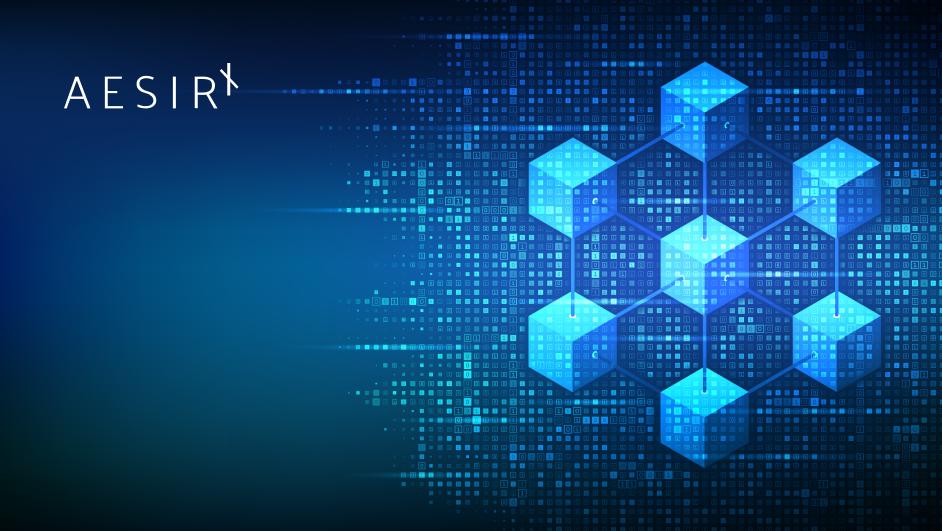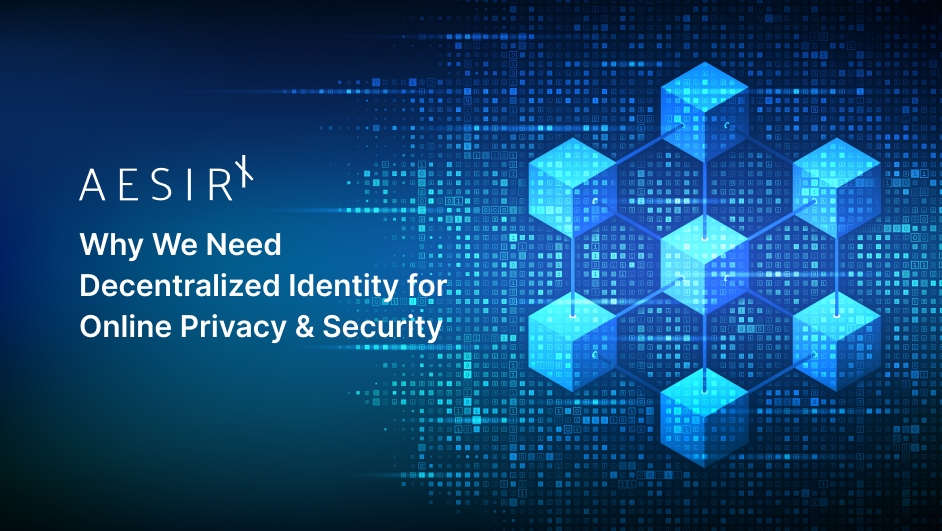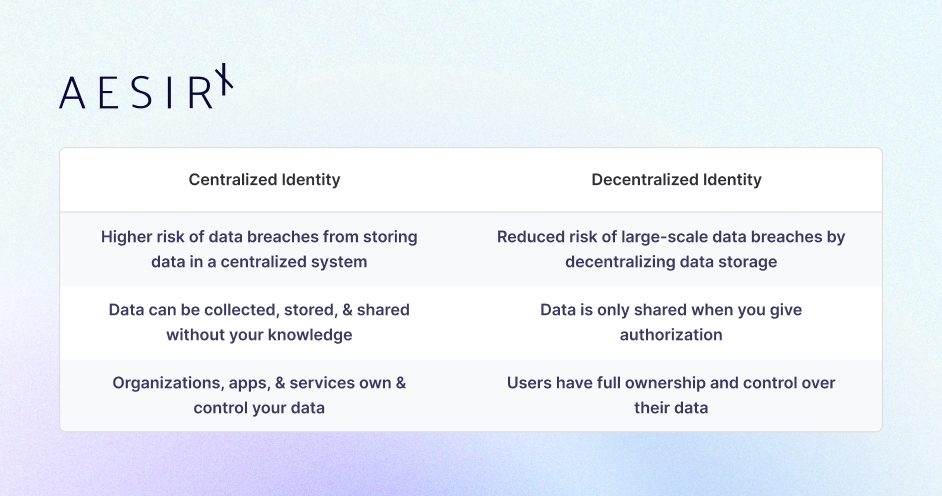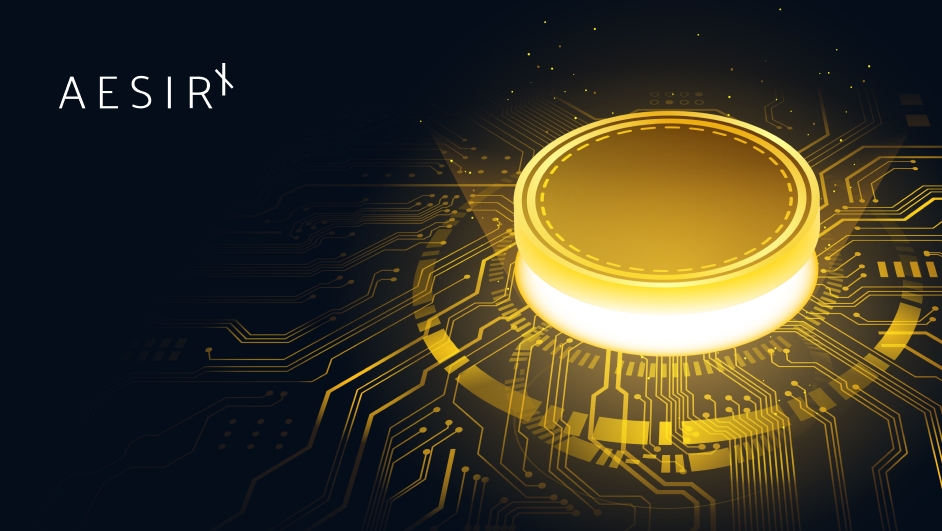Jul 23, 2023
Why We Need Decentralized Identity for Online Privacy & Security

Web3, the next generation of the Internet, is set to transform the way we interact and exchange information online. At the heart of this transformation is decentralized identity, a technology utilizing blockchain to give people control over their personal data and identities in a secure and tamper-proof manner. Explore how decentralized identity is reshaping the digital landscape and providing numerous benefits to individuals, organizations, and developers.

Introduction to Decentralized Identity
1. What is decentralized identity?
Decentralized identity is a type of identity management that allows people to control their own digital identity without relying on a specific service provider, resolving many of the data security, privacy, and consent issues that traditional paper and digital IDs present.
A digital identity is the body of information about a person, business, or electronic device that exists online. It may include the following data:
- Usernames and passwords
- Search history
- Social security number
- Purchase history
Verifying our online existence is frequently required to exercise our rights as citizens and access physical and digital services. According to the World Bank, approximately 850 million people worldwide lack official identification (let alone a digital one)[1]. Decentralized identity systems provide a solution. They only require an internet connection and a smart device.
2. How decentralized identity differs from traditional identity systems
Decentralized identity management has several advantages over traditional centralized identity systems. Here are some key differences:
- Ownership and Control: In decentralized identity, individuals have ownership and control over their digital identities. They can manage and share their information as they choose, instead of relying on a central authority.
- Privacy: Decentralized identity allows users to share only the necessary information, keeping the rest private. This gives individuals greater control over their privacy compared to traditional systems that often require extensive personal information.
- Security: Decentralized identity spreads user data across multiple locations or uses encryption, reducing the risk of data breaches. If one user's information is compromised, it doesn't affect others, making it more secure.
- Trust and Transparency: Centralized identity systems rely on trusting a central authority to handle personal information responsibly. However, trust can be eroded due to data breaches, misuse of data, or lack of transparency. Decentralized identity leverages blockchain technologies to enhance trust and transparency. Verification and auditing mechanisms can be independently validated, ensuring a higher level of trust in identity transactions.
- Interoperability: Decentralized identity aims to provide interoperability between different platforms and services, enabling seamless and secure interactions without redundant verification processes.
- User Empowerment: Decentralized identity gives individuals more control over their digital identities. They can selectively share information, revoke access, and manage their online identities according to their preferences.

Key Advantages of Decentralized Identity
Businesses, individuals, and developers can all benefit from decentralized identity solutions. Here is a breakdown of these benefits:
For Businesses
- Instant validation of fraud-proof credentials and documents, eliminating the need for manual verification processes and saving time and resources.
- Public-key cryptography reduces certificate fraud and increases data security.
- By storing less user information, organizations are less vulnerable to cyber attacks.
- Compliance with data regulations, avoidance of penalties and sanctions for mishandling user data.
For Individuals
- Ownership and control over personal data, ensuring privacy and preventing unauthorized tracking or data sharing.
- Ability to prove claims without reliance on third parties, providing greater independence and trustworthiness.
- Secure storage of decentralized identities and credentials on mobile digital identity wallets, minimizing the risk of credential tracking and unauthorized access.
- Protection against data breaches and phishing attempts, eliminating the need for passwords and enabling safer authentication methods.
For Developers
- Opportunity to create user-centric apps that eliminate the need for passwords, enhancing the user experience and improving security.
- Ability to request data directly from users while maintaining their privacy, enabling personalized and privacy-preserving app functionalities.
- Simplified processes, such as streamlined online shopping and instant sharing of relevant information for loan applications, enhancing efficiency and user convenience.
Overall, decentralized identity provides organizations with increased efficiency, data security, and compliance; individuals with increased data control and privacy; and developers with improved app experiences and simplified data interactions.

AesirX's Decentralized Consent Model: Enabling Privacy and Data Control
AesirX, a pioneer in open-source privacy-focused technology, provides the world's first 4-Tier Decentralized Consent Model for websites using AesirX Analytics through its identity management solution, Shield of Privacy. This innovative model gives users back control over their data, resulting in a safer and more personalized online experience.
The model has four levels of consent, allowing users to choose the level of data protection and personalization they want, with or without WEB3 IDs and Web3 wallets.
One of the most notable features of AesirX's Decentralized Consent Model is the ability for users to revoke their consent at any time. This newfound control allows users to change their minds about sharing their data with websites that use AesirX Analytics, preventing third parties from using their data in the future.
The Future of Decentralized Identity and Online Privacy
Decentralized identities are set to revolutionize how we manage our online presence and protect our privacy. As blockchain and Web3 technologies become more widely adopted, decentralized identity solutions are increasingly important.
AesirX Shield of Privacy is an example, a tool that gives users more control, security, and privacy in their online interactions. This advanced decentralized identity solution has the potential to transform industries such as supply chain, finance, healthcare, and e-commerce. It provides more secure and trustworthy methods for authenticating users and handling sensitive data.
Furthermore, AesirX Shield of Privacy enables new digital services that prioritize user privacy and data security. This paradigm shift is reshaping our digital interactions by providing enhanced control, privacy, and security to individuals, businesses, and developers. AesirX's Decentralized Consent Model, in particular, forges a path toward a more equitable and democratic digital ecosystem, allowing users to safeguard their data while gaining valuable insights and businesses to operate more securely and compliantly.